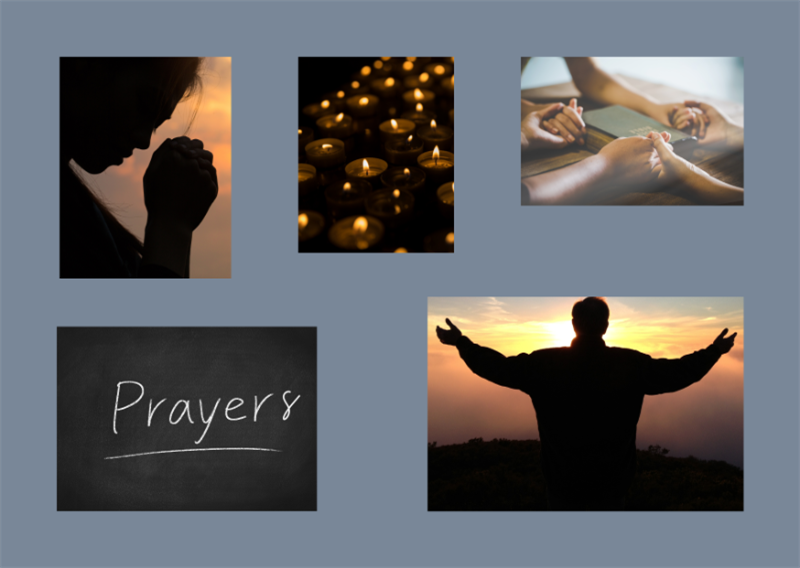13th July 2025

Ordinary Habits that Change the World:
They devoted themselves to... the prayers...
A 2022 survey reported in much of the Church of England press, and on their website, found that, of a sample of over 2000 UK adults, around half said that they had prayed in their life, with around 28% having prayed in the last month. Interestingly, younger people, those in the 20-34 age group, were more likely to have prayed than older adults - 56% (32% in the last month), compared to 41% (25%). The most common topics prayed about were friends & family, health and illnesses, and giving thanks.
The disciples in the early church built their whole lives around rhythms of prayer. They prayed together in their homes. They attended the temple regularly at the time of prayer (see Acts 3). They gathered to pray in moments of crisis (Acts 4, Acts 12). They prayed for those they were sending out on mission (Acts 13). They even prayed in prison (Acts 16)! Theirs was a community defined by both individual and corporate prayer. And their leaders, Paul, Peter and James, in their letters to the churches, constantly exhort these young congregations to "pray without ceasing" (1 Thessalonians 5:17).
I have said before that one of the only tasks I am required by Canon Law to do as vicar is to pray Morning and Evening Prayer daily. And there are many very good reasons for this. "The prayers" - here the Daily Office - give a rhythm to the day, the week, the seasons, the year. The liturgy reminds me that my time belongs to God, not me, and, at times when the busyness and pressure seems to crowd in, offers strong words of scripture to lead my prayers. Like the early disciples, much of the prayer is taken from the Psalms. And so, over the course of a few weeks, we pray with praise and lament, joy and anger; we remember the history of God's dealings with his people, and are reminded of the way God calls us to live. We bring the day and its tasks, the world and its needs, the church and her life to God, and are reminded that God is interested in those basic details of our individual and common life.
Why do we pray? We pray because prayer brings us into living contact with Jesus. We pray because it is through prayer - whether noisy or silent, structured or open, verbalised or not verbalised, expressed in art or music or dance or tears - that our soul makes a connection with the soul of Jesus and we are drawn closer to God's heart for us.
